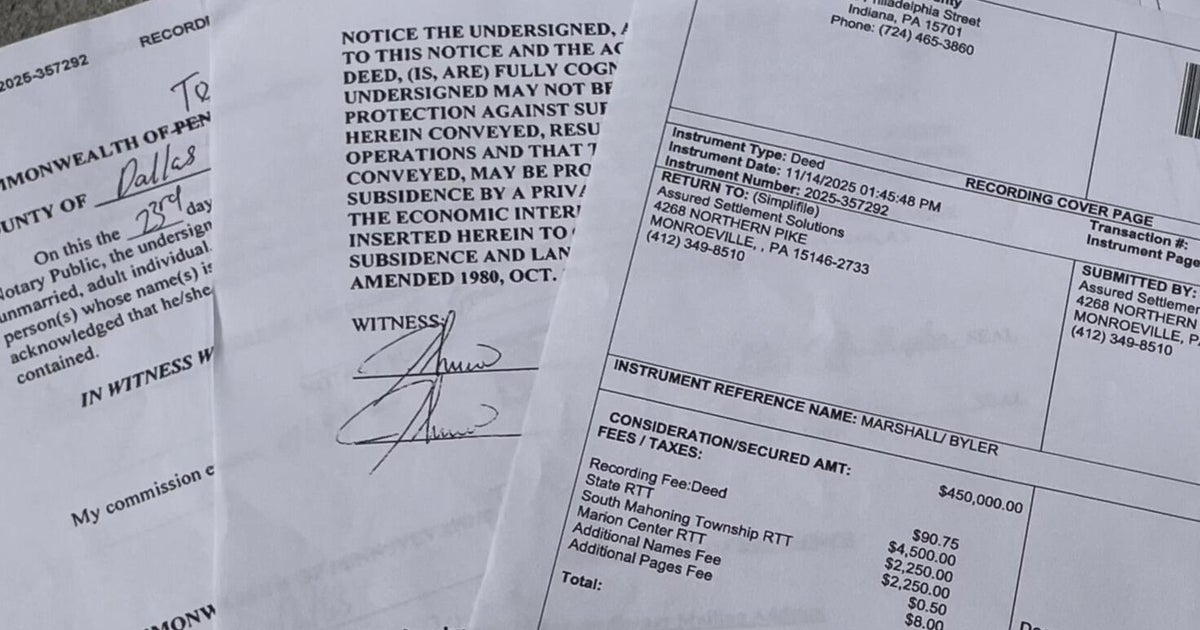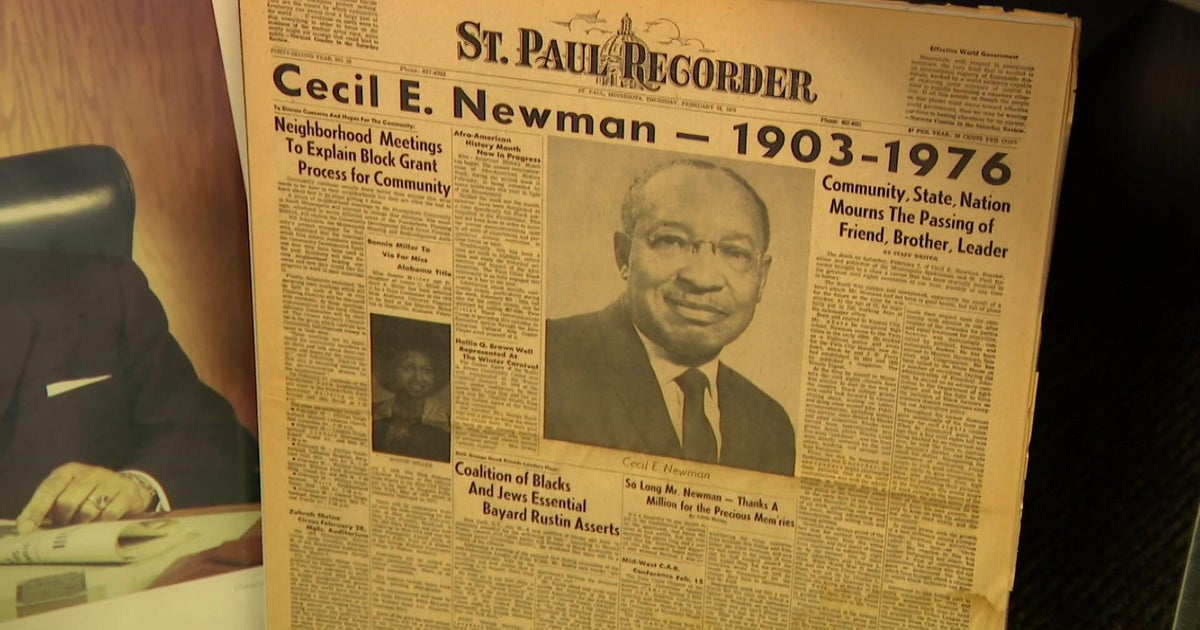Gas Field Spurs Ire In Some North Texas Communities
DENTON (AP) - Gas well drilling once seemed a lush windfall for tiny but rapidly growing rural communities in parts of North Texas. Today, it's a growing source of fear, pain and outrage in some communities caught unprepared for controlling the where and when of drilling and production of the Barnett Shale fields and some of the unpleasant byproducts.
An ongoing series in the Denton Record-Chronicle shows some families reporting mysterious illnesses in the months and years since the drilling of nearby gas wells. Other families are choosing to leave the area rather than risk the lost property values and other costs of staying in what they see as an increasingly unattractive, perhaps unsafe environment.
One is that of former Dish Mayor Calvin Tillman, who moved after fighting for reform in drilling practices.
Some concern stems from the use of hydraulic fracturing in the Barnett Shale to release natural gas trapped in the ground. The process, known as fracking, has raised fears among the rural residents that their drinking water wells are being polluted by the water being injected into the ground. Under a congressional mandate, the U.S. Environmental Protection Agency has ordered a study of water quality and quantity. Findings are expected to be released next year.
"It's a difficult thing to do the forensic analysis of water well contamination," said Philip Dellinger, chief of the EPA's Ground Water/Underground Injection Control Section. However, he told the Record-Chronicle that he was confident that the study will resolve the question of whether fracking poses a public hazard.
"If this is safe, let's put the fear to rest. If not, let's make it safe," he told the newspaper.
Kenny Klement, a member of the North Texas Groundwater Conservation District, gets frequent telephone calls from residents of the district whose water wells have gone dry because of the prodigious amount of water -- much of it groundwater -- used to push gas to the ground.
"Most people here are all for it," the retired Cooke County dairy farmer says of gas drilling. "But even people who are for it say the companies need to figure out how to reuse water."
That is not Rebekah Sheffield's concern. Rather, the Dish mother of four fears that pollution from gas wells across the road from her family's century-old farmhouse has made her hypersensitive to such normally benign chemicals as soaps, shampoos and other toiletries -- so sensitive as to induce vertigo that resulted in so many falls that she now uses a wheelchair.
Her doctors could not determine a specific cause of nor a treatment for her multiple chemical sensitivity. Sheffield, however, said she is convinced that chemicals given off by the gas drilling and production are to blame for her health miseries.
She was one of 28 residents who participated in a state health department study that took blood and urine samples in January 2010 and analyzed for chemicals associated with Barnett Shale gas drilling and production. Carrie Bradford, the state toxicologist, told residents at a town meeting in May that levels of the chemicals were consistent with those found in 95 percent of the general population.
Dish officials estimate about 1 billion cubic feet of gas flows through three metering stations, more than 20 major gas gathering pipelines and 11 compression plants stationed within the two square miles of the town limits.
Tillman was not unfamiliar with oil and gas drilling when he moved to Dish in 2003, having grown up in the Oklahoma oil fields. However, as time passed, reports of murky water grew, and the racket and smell from the drilling rigs and compressors made him an advocate of safer drilling practices. Eventually, the Dish town council voted a moratorium on issuing new permits for drilling within the tiny town.
Tillman is no longer a Dish resident, though. His two young sons awoke in the middle of one night with nosebleeds and a strong odor in the air. State environmental officials ran a study but found no violations. In September, the Tillmans put their home up for sale. Last month, the sale closed and the Tillmans moved to another town nearby.
(© Copyright 2011 The Associated Press. All Rights Reserved. This material may not be published, broadcast, rewritten or redistributed.)







